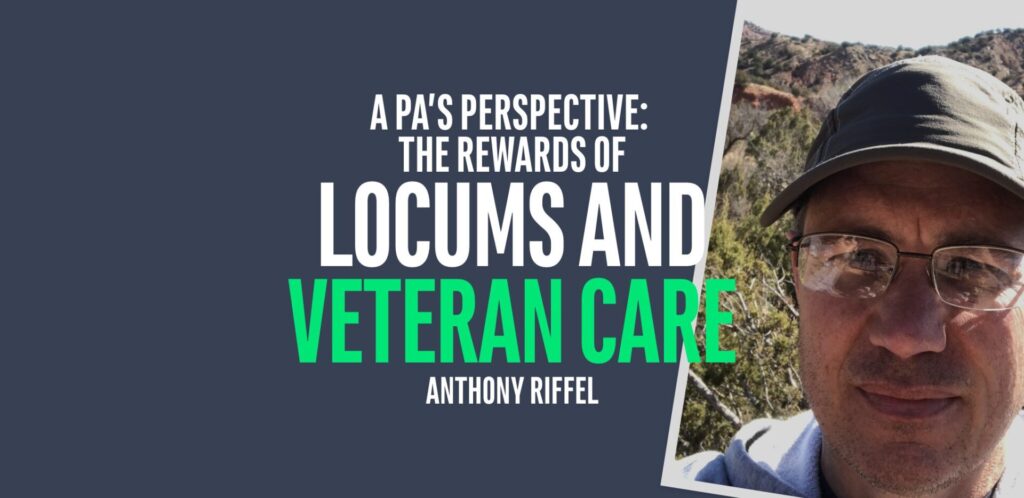Learning the ropes of a new locums assignment can be challenging, especially in a field as specialized as Neurosurgery. But remembering the three A’s––aptitude, affability, and availability––can help set you up for success.
Dr. Howard Levene is a great example of all three attributes. He left his prior job just before the pandemic began and adapted by taking on Neurosurgery locums jobs. We spoke to Dr. Levene about how the experience of practicing locums in the wake of a pandemic grew his skillset, and why he recommends that every neurosurgeon try locums.
Here’s what he had to say:
Can you tell us a little bit about what led you to medicine?
I’m not from a medical family. My father, bless his memory, was a mechanical engineer who actually had some very famous projects such as working on the moon buggy that drove around on the moon. My family were all engineers and teachers, so it’s not unexpected that I have an engineering bent. I picked a Mechanical Engineering major in college and really enjoyed it, but I decided that I didn’t want to live in a cubicle, and I didn’t want my life to be Dilbert [laughs].
Around that same time in college––and this is a true story, which went right onto all my medical school applications––I found a Monarch butterfly in the sand with a broken wing. It was clearly suffering, and I was about to stomp on it to put it out of its misery, but then I paused and thought, I’m a good engineer. Maybe I can fix this. I had been studying hollow tubes as part of my engineering course, so I scooped up the butterfly and took it back to my Nana’s house, and asked her for a toothpick and some nail polish. My father whittled the toothpick down until it was flat and glued it with nail polish onto the butterfly’s wing, and used a little nail polish on the gossamer. Eventually, the butterfly flew away.
That’s when I knew this was what I wanted to do: take engineering principles and fix people.
[I was eventually drawn to] surgery because I enjoyed being able to use my hands, and because I was good at fixing things. And I’m still good at fixing things.
What factors went into the decision to pursue neurosurgery locums jobs full-time?
I had a number of irons in the fire in 2019 and I thought I would get myself a new position when I left my prior position.
Well, my plan got thrown for a loop. Something big happened that wasn’t on my bingo card for 2020: a major pandemic. And of course, what happened in 2020 is that everything got shut down. All my irons in the fire got extinguished. I knew I wouldn’t be able to find a job because there was a pandemic, everyone was in lockdown, and no one was hiring. So that’s when I started to explore locums.
Did you have any concerns about the locums lifestyle?
I’ll tell you, the first time you do locums is terrifying. Because every time you go to a hospital, you’re starting over. After years of being at the same hospital, you don’t realize how much you’ve integrated into the system. After being in the same hospital for 7 years as a resident, I knew every telephone extension. If I got a page, I knew where you were standing, I knew where that phone was, I knew which corner of the ninth floor ICU you were on!
But when you do locums, everything gets reset every time. Unless you’re going back to the same place over and over, when you show up at the hospital, you don’t even know where the bathrooms are. You don’t know where the CAT scan or the MRI is. And if someone calls you to come to the operating room, you might have just learned where that was two hours ago, and you must find your way around the hospital. So you must learn to integrate quickly.
If you are traveling far from your family, that also can be difficult. On the other hand, you do get to visit different areas of the country that you may not have seen before. Did you know Taco Pizza is a thing in North Dakota?
What is it like practicing as a locums neurosurgeon vs. as a hospital employee?
One of the big differences is ownership. Your job doesn’t own you. When you go to a hospital, you are external to them––basically, you’re a substitute teacher. Additionally, you don’t get to “own” your patients. You are temporary and you won’t get the extended doctor-patient relationship you get in a regular practice, which many doctors (like myself) find satisfying.
Some hospitals treat you very nicely because they’re so grateful that they have someone competent who’s shown up. And then in some hospitals, you’re just someone they brought in to help them out in need. There is an advantage here, too. If you identify a hospital as having an incompatible atmosphere, you are not obligated to return. If you identify a hospital system or position you like, you can try to schedule to return as long as you are needed.
I’ve found that when you go for a locums job, you must be very agreeable. You can’t expect that you’re going to come in there and be treated like royalty. You’re not their neurosurgeon––you’re filling in. You must be flexible, and you must adapt to whatever setups they usually use.
What are some of the positives of practicing locums as a neurosurgeon?
I would recommend that every neurosurgeon do locums.
One of the things you’ll learn as a locums neurosurgeon is a big dose of humility. If you’re at one institution for a long time, you can get a big head, because you may be the number one or two person in your department and everyone has to listen to you. But with locums, you’re being judged on your skills and how well you interact with people, not your seniority. That teaches you humility and understanding.
You also learn that what you were taught as set in stone at one institution is simply not true at another. Certain things might be taught to you as the only correct way to do things, but then you go to another institution and they don’t do it that way at all.
The other thing locums gives you is a better sense of your worth. Neurosurgery is really a unique skill set. There’s only a handful of neurosurgeons in the country. And with locums, you get reminded of how much that skill set is really worth.
One of the other advantages is that when you do locums, you’re like an emergency room doctor: once your shift is over, you’re done. One of the things my wife and I both know, because we’re both physicians, is that you can’t do staycations as a physician. It doesn’t work because you’ll get called anyway. Someone will call and say Hey, Dr. Levene––that could be me or my wife––one of your patients showed up, and the family really wants to see you. It’s hard to say no, I’m not available today. But with locums, when your shift is done, your job is done.
How do you prepare for your neurosurgery locums jobs?
Almost always, what I like to know in advance is who my emergency contact person is, and the names and numbers of the neurosurgeons who are already there. You don’t want to get called that first night, and you don’t know whether it’s a patient you’re supposed to take or not.
I always make sure I can log in remotely before I start, because usually they can get through those sorts of things in advance. I want to make sure that when I roll into the hotel that I can do remote access on my computer, so I can make sure that’s all working before I start. Sometimes they can’t quite do that for you, but it’s usually something I ask about.
What advice would you give to other neurosurgeons considering locums?
They always say that every physician has to have the three A’s: aptitude, availability, and affability. That’s true of locums as well.
You have to have high aptitude––if you’re not good at what you do, it doesn’t matter how nice you are; no one wants the very pleasant klutz to come in who’s going to hurt patients.
You must have high availability, and make sure that the hospital can reach you. One of the things I learned was to always list the hotel room number as my backup phone number. As much as we love our phones and our computers, sometimes they do glitchy things for no reason. That’s no big deal if you’re an accountant, but it’s a real big deal if you’re on call for trauma.
And then you have to have a high affability quotient. As a locums neurosurgeon, you’re pretty much running by yourself, so you have to make sure that you’ve made good connections with the hospitalists, the intensivists, the trauma team, and the nurse practitioners. You can’t walk in there and start demanding things from the OR just because you’re a neurosurgeon. They don’t care who you are. You’re just a locums to them. Unless your patient is about to die, they’re not going to do anything special for you. Therefore, you must be a very agreeable person to really succeed in locums.
*This interview has been edited for clarity and length.



